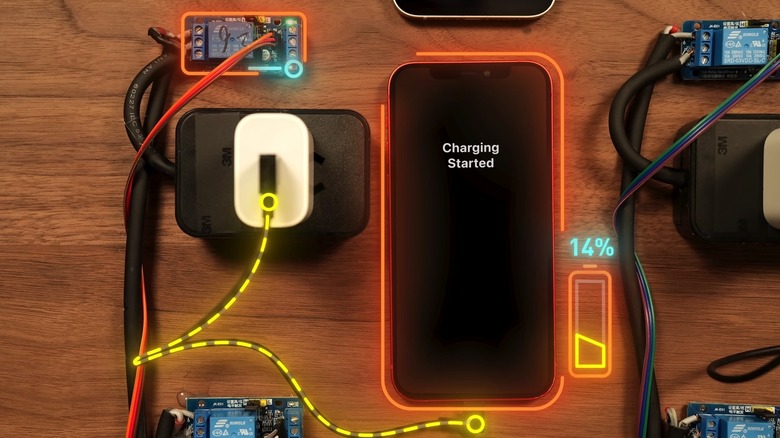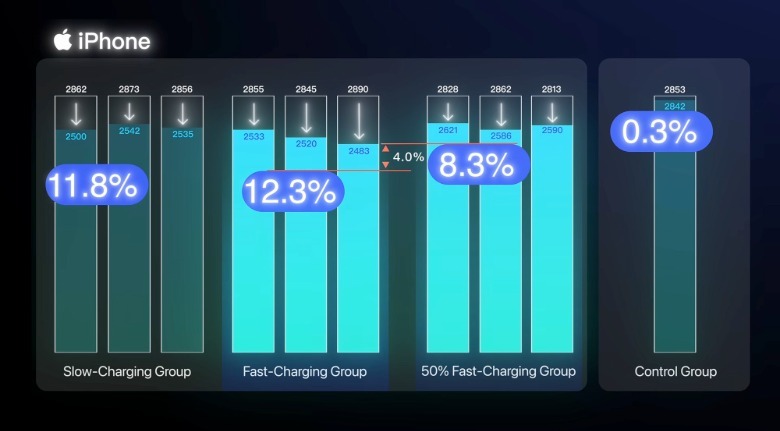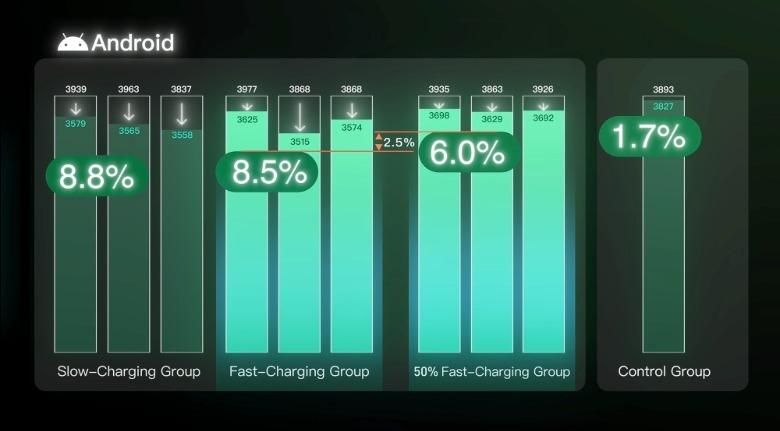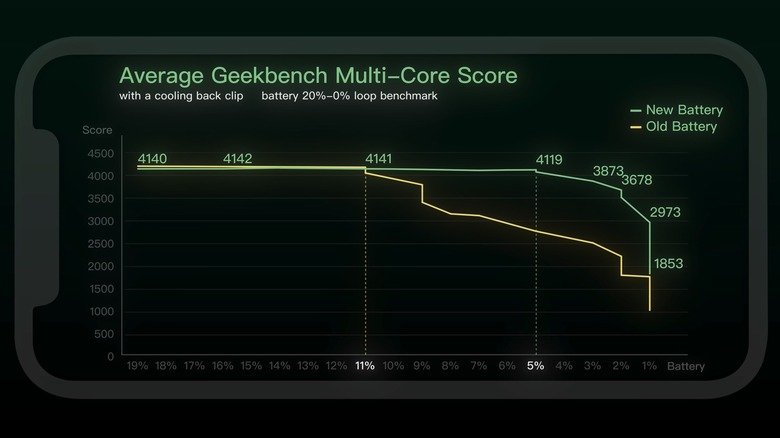Does Fast-Charging Hurt Your Phone Battery? This Two-Year Test Has The Answer
YouTube channel HTX Studio conducted a massive smartphone battery charging experiment that involved buying 40 phones and spending two years conducting battery charging experiments using fast and slow chargers to answer a hotly debated question: Does fast-charging hurt the health of your iPhone or Android phone? The 8-minute clip below also answers additional questions you might have about smartphone batteries. For example, should you replace the battery when the battery health drops below 80%? Also, should you charge your phone when it drops below 30%, without maxing it out at 100%?
These are the kinds of battery questions that regular reviews and other battery comparisons can't answer. We see smartphone battery tests all the time when new models are released. For example, battery tests for the iPhone 17 series showed the iPhone Air has better battery life than expected, while the iPhone 17 Pro Max offers the best battery life in any iPhone, and easily surpasses the competition. We also saw iPhone 17 battery charging speed tests. But HTX Studio's experiments surpass anything other YouTube creators have tried
The smartphone battery experiments detailed
HTX Studio did not spend two years continuously charging and discharging the batteries of iPhone and Android smartphone models for the experiment. Instead, the YouTuber went through three iterations of the tests until they were able to perform a continuous charge and discharge experiment for multiple devices using the same automation procedures. They used six iPhone 12 and six iQOO 7 phones, dividing the models into fast-charge and slow-charge groups for each platform. An app discharged each phone from 100% to 5% (0.95 cycles), which triggered automatic charging. When a battery reached 100% capacity, charging was discontinued, and the app reran its course. The YouTuber ran the same experiment for phones set to charge and discharge between 30% and 80% (0.5 cycles).
After 167 days and 500 cycles, i.e., about 1.5 years of typical smartphone use, the results showed that fast-charging (20W on iPhone and 120W on iQOO) does not significantly impact battery health compared to slow-charging. Here are the results:
- iPhone 12 slow charging: lost 11.8% battery capacity
- iPhone 12 fast charging: lost 12.3% battery capacity
- iQOO slow charging: lost 8.8% battery capacity
- iQOO fast charging: lost 8.5% battery capacity
The conclusion is that fast-charging impacts the battery health even less if you recharge at 30% and stop charging at 80% compared to slow charging from 5% to 100%. But the differences are still negligible.
Smartphone performance and battery replacements
HTX Studio also ran an experiment to see how smartphone batteries lose charge when unused, and whether leaving a phone at 100% is safe for the battery. He stored three iPhone 12 units at 1%, 50%, and 100% (plugged in) for a week, but none of them showed a measurable battery capacity change, suggesting that battery aging is a long-term process. Leaving the phone at 100% charge for short periods will not damage the battery.
However, after hundreds of cycles, the battery health will degrade. His experiments showed that performance isn't affected by the drop in battery health until about 85%. At this level, throttling starts at 11% battery life compared to 5% when battery health is above 85%. Once the battery health drops below 79%, battery life will shorten even more. Add the quicker throttling phenomenon, and you have two reasons to consider replacing the battery to restore battery life and sustained performance.



